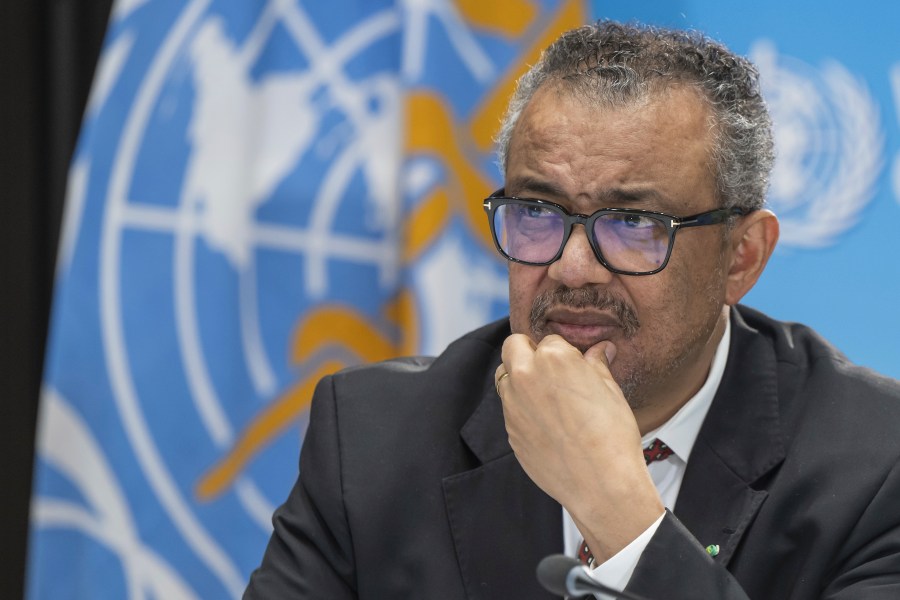(NewsNation) — The COVID-19 global health emergency is over, Tedros Adhanom Ghebreyesus, director-general of the World Health Organization, declared Friday morning.
“Yesterday, the Emergency Committee met for the 15th time and recommended to me that I declare an end to the public health emergency of international concern,” Tedros said. “I have accepted that advice.”
However, the WHO chief said COVID-19 is still a global health threat.
“Last week, COVID-19 claimed a life every three minutes — and that’s just the deaths we know about,” Tedros said at a news conference.
According to the WHO, almost 7 million COVID-19 deaths have been reported to the organization — but Tedros says the toll is likely several times higher: at least 20 million.
A global health emergency for the coronavirus was first declared by WHO on Jan. 30, 2020. But now, for more than a year, Tedros said, the pandemic “has been on a downward trend,” as immunity increased from people both getting vaccinated and infected with the disease. Mortality has decreased, Tedros said, and pressure on health systems is easing.
“This trend has allowed most countries to return to life as we knew it before COVID-19,” Tedros said.
Last month, the U.S. national emergency response to the COVID-19 pandemic also ended, after President Joe Biden signed a bipartisan congressional resolution to bring it to a close after three years — weeks before it was set to expire alongside a separate public health emergency on May 11.
WHO’s decision to end its own emergency came after a year of its Emergency Committee analyzing data, Tedros said, insisting that this was not a “snap decision.”
“It is a decision that has been considered carefully for some time, planned for, and made on the basis of a careful analysis of the data,” Tedros said.

Tedros cautioned Friday that this news shouldn’t be a reason for countries to let their guard down, though.
“If need be, I will not hesitate to convene another Emergency Committee should COVID-19 once again put our world in peril,” he said.
Of the tragedies COVID-19 brought — deaths, long-term illness, economic turmoil, social upheaval —Tedros said one of the greatest was that, “It didn’t have to be this way.”
“We have the tools and the technologies to prepare for pandemics better, to detect them earlier, to respond to them faster, and to mitigate their impact,” Tedros said. “But globally, a lack of coordination, a lack of equity and a lack of solidarity meant that those tools were not used as effectively as they could have been. Lives were lost that should not have been. We must promise ourselves and our children and grandchildren that we will never make those mistakes again.”
Now, countries are negotiating over the pandemic prevention, preparedness and response accord and amendments to the International Health Regulations in an attempt to have a better response to future disease outbreaks.
The Associated Press contributed to this report.






